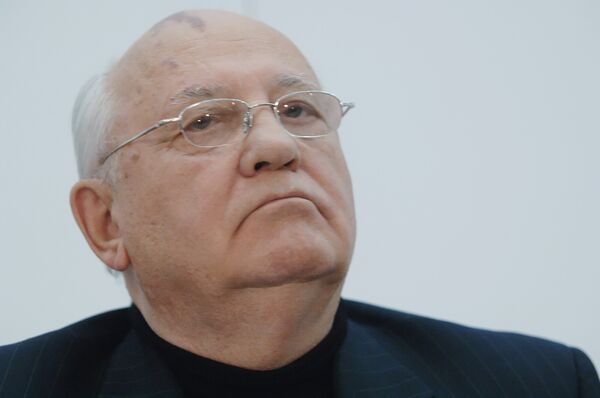MOSCOW, November 6 (RIA Novosti) - Soviet leader Mikhail Gorbachev wasted the historic opportunity offered by the fall of the Berlin Wall, failing to reap any reward for the momentous event, Russian political commentators said on Friday.
November 9 marks the 20th anniversary of the fall of the 160-km concrete barrier between East and West Berlin, the symbolic demarcation line between the socialist camp in Eastern Europe and the West.
"The Soviet Union, which controlled a significant part of Eastern Europe, should have, and realistically could have obtained huge economic and even geopolitical benefits in exchange for leaving those territories," political analyst Dmitry Orlov said.
"The blame for the failure to do that lies at the door of the then-Soviet leadership, primarily President Gorbachev and Foreign Minister [Eduard] Shevardnadze," he added, calling Gorbachev "an extremely ineffective leader."
He suggested the Germans were ready to "pay in full" for the reunification of Germany.
His view is shared by Valery Khomyakov, director of the National Strategy Council.
"Perhaps there should have been more horse-trading. The West would have ceded a great deal to ensure the fall of the Berlin Wall, which divided not only Berlin, but the entire world into two camps.
"For example, an agreement could have been reached that NATO would not expand to the territory of former Warsaw Pact member countries, not to mention the post-Soviet area or the Baltic States."
Sergei Lukashevsky, director of the Andrei Sakharov Museum/Public Center, said that despite the fall of the Berlin Wall, the East-West divide remained.
"What we are seeing today is that [old] barriers are still there, and even new walls of misunderstanding... new cultural and psychological barriers are rising," he said.
Nobel Peace Prize winner Gorbachev, who presided over the breakup of the Soviet Union, said in an interview published on Friday that 1989 was a turning point in world history, bringing the collapse of the wall and the velvet revolutions that toppled communist regimes in Central and Eastern Europe.
Gorbachev said the U.S.S.R. abandoned its domineering policy toward Soviet-bloc states leaving them to decide their future, which helped avoid bloodshed during the ensuing revolts, Rossiiskaya Gazeta reported.
However, he said nations failed to create viable security arrangements after the end of the Cold War and new "separation lines" appeared in Europe, which was rocked by bloody wars.




